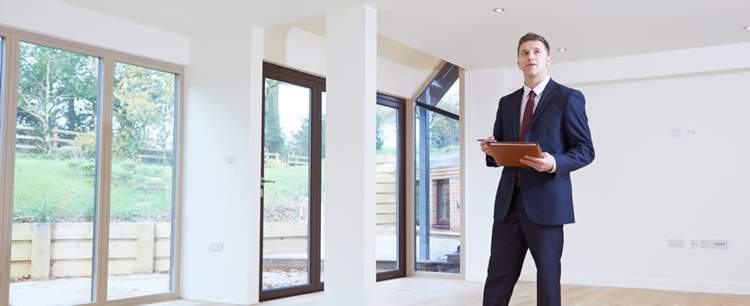Probably the most important consideration when buying any kind of insurance is to choose the policy that most closely suits your needs and circumstances.
This is especially true of Unoccupied House Insurance since your own home, holiday home, let residential property or commercial premises may be at stake.
What is it?
Unoccupied House Insurance, also known as ‘unoccupied property insurance’ or ‘empty property insurance’, is just that – insurance for your property during those periods when it is left unoccupied.
According to the latest Census data from 2021, there are around 1.5 million unoccupied properties in England and 120,450 in Wales.
The number of long-term vacant properties (unoccupied and unfurnished for six months or longer) in 2023 reached 46,217 in England, 46,217 in Scotland, and 27,000 in Wales.
These properties may be unoccupied for any number of reasons, such as:
- Renovation, refurbishment or other building works that mean it is temporarily uninhabitable.
- Periods during the year when neither the owner nor anyone else is using a second home.
- The property is subject to probate, pending a decision on its longer-term future.
- The let property is awaiting the arrival of new tenants.
- The owner’s work takes them to another part of the country, or even overseas, for several months.
The actual definition of an unoccupied property may vary from one insurer to another but is generally between 30 to 45 consecutive days.
Empty property insurance – of the kind we specialise in here at UKinsuranceNET – is a standalone policy which ensures that comprehensive protection is maintained while your property is unoccupied.
What to look for
If you are in search of this type of insurance you may need to ensure that it suits your individual needs and circumstances, together with a number of other considerations.
Suitability for your property
You will need to ensure that the cover is suitable for your particular type of property – whether owner-occupied or let property, for example.
Non-standard property
If yours is otherwise regarded as a non-standard property – such as a building converted into individual flats, a listed building, or of an unusual type of construction – you are still likely to need comprehensive empty house insurance.
Extra flood risk cover
If your property is located in an area previously subject to flooding, you may want to choose an insurer prepared to take on this risk, since some may not.
Level of overall cover
You will want to ensure that the cover extends to the risks you need to be covered – such as theft, malicious damage or escape of water.
Cover for minor renovations
Check that your cover can be extended even if the vacancy is a result of fairly minor works – for the fitting and installation of a new bathroom or kitchen, for example.
Cover for major renovations
On the other hand, you may need an insurer prepared to offer cover for the duration of major renovation works.
No time restrictions
If your property is likely to stand empty for an indefinite period of time, you might want to make sure that your insurer imposes no time restriction on the length of that period.
The amount of excess
The amount of excess you need to pay in the event of a claim – including that for any escape of water – may also be an important consideration.
Security and inspection requirements
You may also want to take into account the degree of building security and inspection any insurer expects you to take during the period it is unoccupied.
In this respect, there are specialist property inspection services you may wish to consider.
Get covered at UKinsuranceNET
There is a long list of considerations you may want to take into account when arranging your empty property insurance and, for that reason, you may regard the services of a specialist Unoccupied House Insurance provider, like UKinsuranceNET, to be invaluable.
With more than 20 years of leading industry experience, we make insuring an empty house simple and straightforward with tailored policies to meet your exact requirements.
For more information about Unoccupied House Insurance or to speak to an adviser about your specific needs, don’t hesitate to contact us on 01325 346328.
NB: This blog was first published on 28 November 2020 and has since been updated to provide the most accurate and up-to-date information available.







